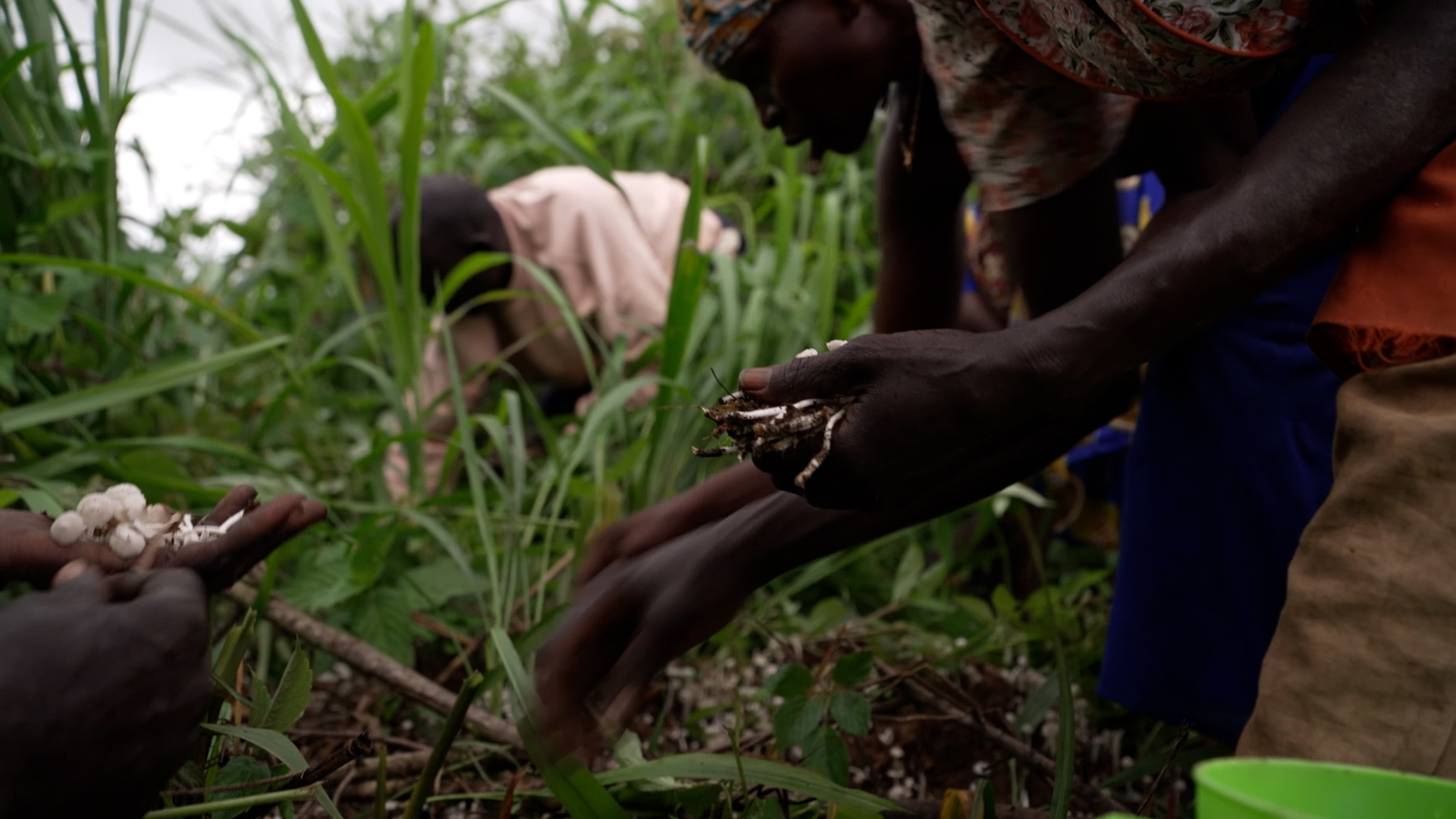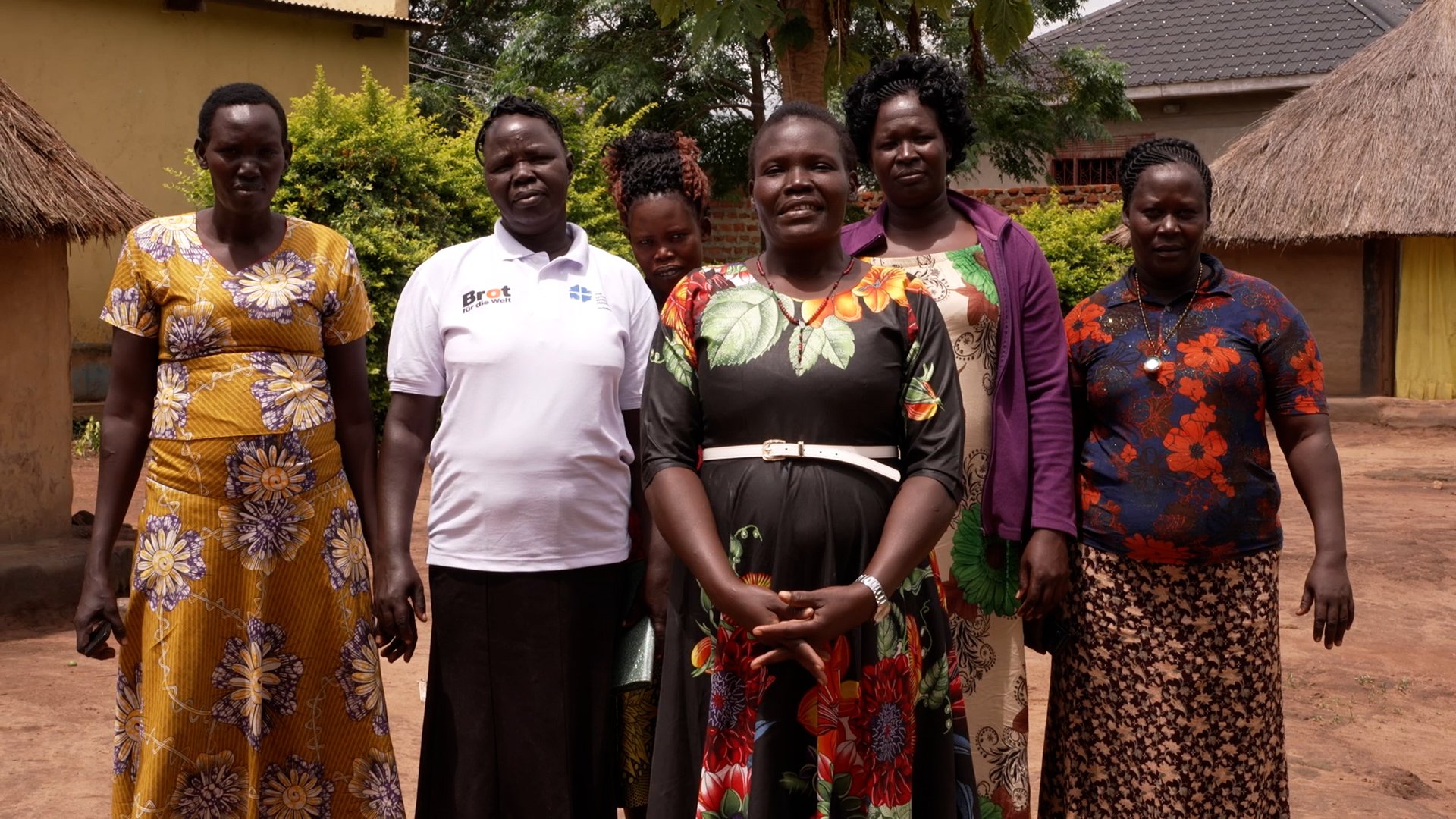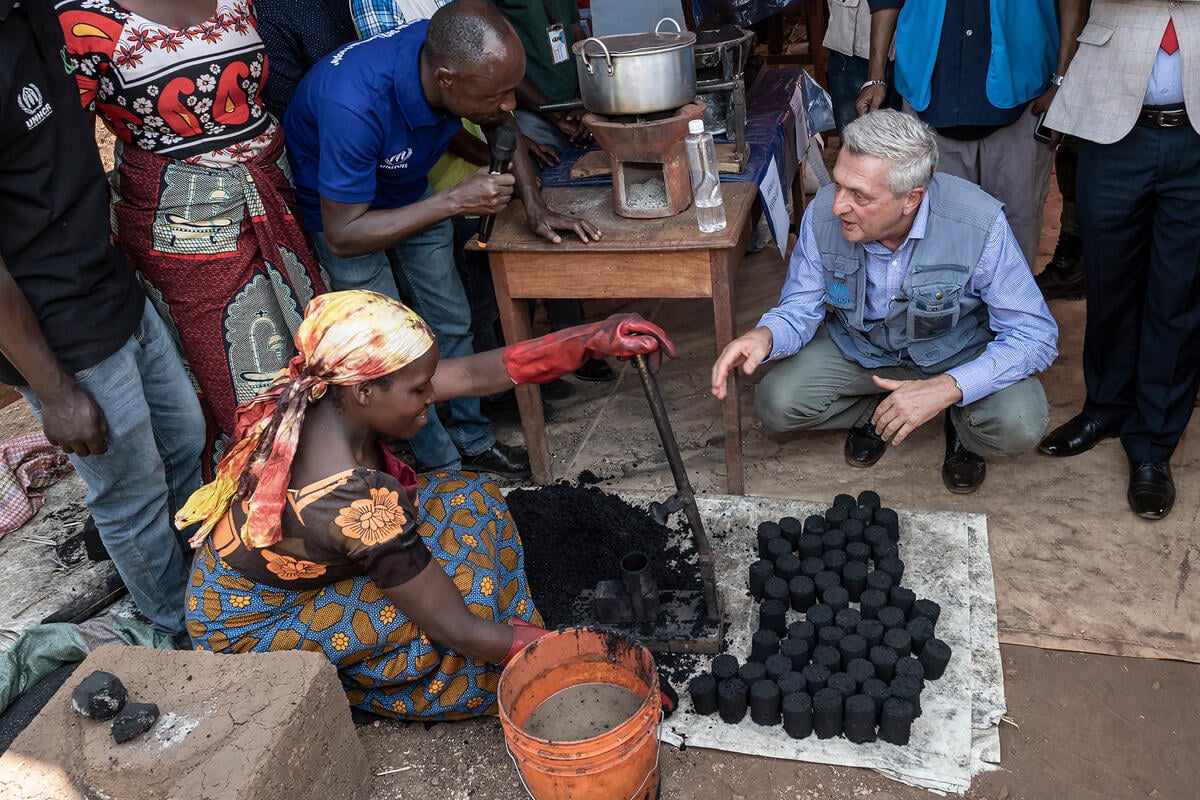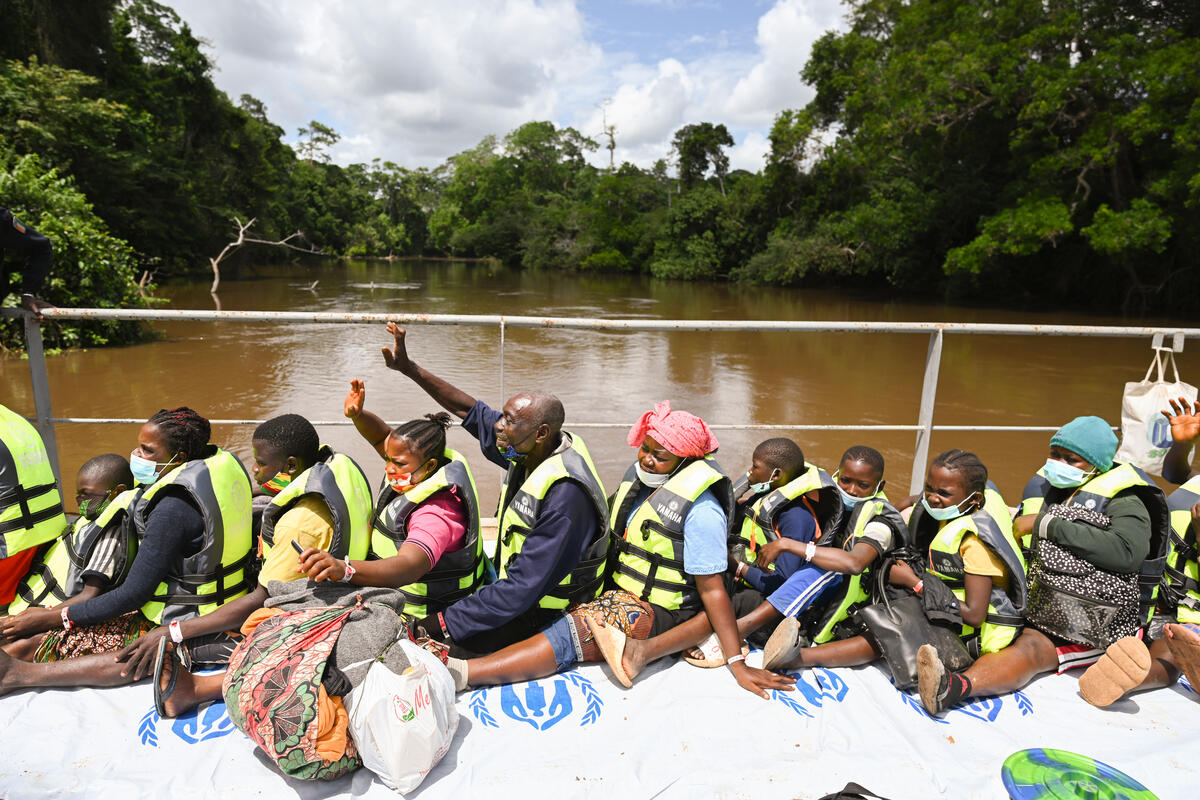Refugees return to Equateur province as UNHCR promotes reconciliation
Refugees return to Equateur province as UNHCR promotes reconciliation

DONGO, Democratic Republic of the Congo, October 19 (UNHCR) - It's been almost two years now, but Elisabeth* can still hear the screams of her mother as she was raped by armed men in an orgy of violence sparked by a row over fish ponds in northern Congo's Equateur province.
"They arrived very early in the morning. It was a Thursday. We did not even know it was war," said Elisabeth, recalling the attack on the small town of Dongo on October 29, 2009. "I was at the hospital. I hid behind the tall grass and saw three men disembowel a pregnant woman."
It got worse. Filled with horror, she ran home. "Armed men were raping my mother in our house. After raping her they killed her. I was hiding in a hole, but I heard as she cried," said Elisabeth, still traumatized. She fled across the nearby Oubangui River and sought shelter in Republic of the Congo.
She was one of more than 130,000 civilians to flee to neighbouring countries, mostly the Republic of Congo. A further 100,000 sought shelter in other parts of Equateur province, most of whom have since returned to their villages.
Despite her apprehension, Elisabeth also chose to repatriate earlier this year to Dongo with her four children. Only about 2,000 other Congolese refugees have recrossed the Oubangui to return home, but many come over to check their lands on a regular basis. UNHCR has been helping these returnees and promoting reconciliation between the Enyele and Munzaya communities.
"Life on the other side was difficult. We had a house to rent, but no money, no job and nothing to do. I came back to Dongo as soon as I heard that security had returned," explained Elisabeth, who now works as a social worker for UNHCR's local implementing partner, AIDES, helping other returnees rebuild their lives.
News of their progress is reaching the refugees in Republic of Congo and people are returning on their own in a small, but steady, daily stream. Homes need to be rebuilt in Dongo - UNHCR funded construction of a new shelter for Elisabeth - but a market is up and running and people are finding ways to support themselves.
Elisabeth is upbeat about the situation. "I say to my brothers living in the Republic of Congo that they can return. There is no war, everyone can return to the fields and children can attend school. We can even walk down the street late at night," Elisabeth said with a smile.
"I visit people who have chosen to return home, I see what their needs are, I meet with the sick and I follow them. I'm here to help them restart their lives here. Here, everybody knows me," she added, explaining her work.
UNHCR helps the spontaneous returnees by providing them with basic necessities such as plastic sheeting, sleeping mats, blankets, cooking utensils and mosquito nets. Its shelter programme helps the most vulnerable people rebuild their homes.
In partnership with other agencies, UNHCR also runs a programme to facilitate reconciliation between the rival communities, which led to the signature of a non-aggression pact in March.
As part of the reconciliation programme, a UNHCR-funded community radio station went on air earlier this month. Radio Racodo is based in Dongo and can also be listened to by refugees across the Oubangui. It was set up to facilitate information sharing and dialogue between the rival communities.
Elisabeth enjoys listening to the radio. "If there are problems in the cities or neighbourhoods, we hear about it on the radio," she said. "I think it's a good way to consolidate reconciliation," she said, adding that she particularly enjoyed the programmes on conflict resolution, women's rights, health, hygiene and disease prevention.
But while Elisabeth has begun rebuilding her life, the scars remain. "I cannot forget the screams of my mother. I hear them in my dreams," she told UNHCR, while adding: "I cannot forget, but I can forgive."
* Name changed for protection reasons
By Celine Schmitt in Dongo, Democratic Republic of the Congo








